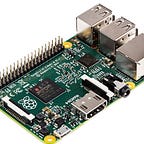The Evolution of Agile Methodology in Software Development
Agile methodology has revolutionized the software development industry, providing a flexible and efficient approach to project management and product delivery. Originating in the early 2000s, Agile has evolved significantly over the years, adapting to new challenges and technological advancements. In this article, we will explore the history, principles, and future trends of Agile methodology.
History of Agile Methodology
The origin of Agile can be traced back to the publication of the Agile Manifesto in 2001. Seventeen software developers gathered in Snowbird, Utah, to discuss lightweight development methods, resulting in a manifesto that emphasized individuals and interactions, working software, customer collaboration, and responding to change. This marked a departure from traditional, rigid project management techniques like Waterfall, which often faced criticism for being too linear and inflexible.
Core Principles of Agile
The Agile Manifesto is based on four core values and twelve principles:
- Individuals and interactions over processes and tools
- Working software over comprehensive documentation
- Customer collaboration over contract negotiation
- Responding to change over following a plan
The twelve principles further emphasize continuous delivery, welcoming changing requirements, and close, daily cooperation between business people and developers. These principles collectively provide a framework that supports flexibility, quick adaptation, and continuous improvement.
Evolution of Agile Practices
As Agile gained popularity, several frameworks and practices emerged to support its implementation. Here’s how some of the most prominent ones have evolved:
Scrum
Scrum is one of the most widely used Agile frameworks, emphasizing iterative progress through time-boxed sprints. Initially designed to manage small teams, Scrum has scaled over time to accommodate larger organizations through approaches like Scaled Agile Framework (SAFe) and Large-Scale Scrum (LeSS).
Kanban
While not originally part of the Agile family, Kanban has seamlessly integrated due to its emphasis on visualizing work, limiting work in progress, and optimizing flow. Modern Kanban systems often incorporate Agile principles to enhance flexibility and efficiency.
DevOps
DevOps emerged from Agile’s need for faster and more reliable software delivery. By bridging the gap between development and operations, DevOps practices such as Continuous Integration and Continuous Deployment (CI/CD) have become essential components of Agile methodologies.
Current Trends and Future Directions
Agile methodology continues to evolve, influenced by technological advancements and changing organizational needs. Some of the current trends and future directions include:
Agile in Remote Work
The COVID-19 pandemic has accelerated the adoption of remote work, challenging Agile teams to maintain effective communication and collaboration. Tools like Zoom, Slack, and Jira have become indispensable in supporting remote Agile practices.
Agile and AI
Artificial Intelligence (AI) and Machine Learning (ML) are set to further transform Agile methodologies. Predictive analytics can help teams make data-driven decisions, while AI-driven tools can automate mundane tasks, allowing developers to focus on more strategic aspects of the project.
Business Agility
Business Agility extends Agile practices beyond software development to encompass the entire organization. This holistic approach ensures that all departments, from marketing to finance, embrace Agile principles, leading to a more adaptable and resilient business model.
The Agile methodology has come a long way since its inception, continually adapting to meet the needs of an ever-changing industry. By embracing the core values and principles of Agile, organizations can improve their project outcomes, foster innovation, and stay competitive in a rapidly evolving technological landscape.
